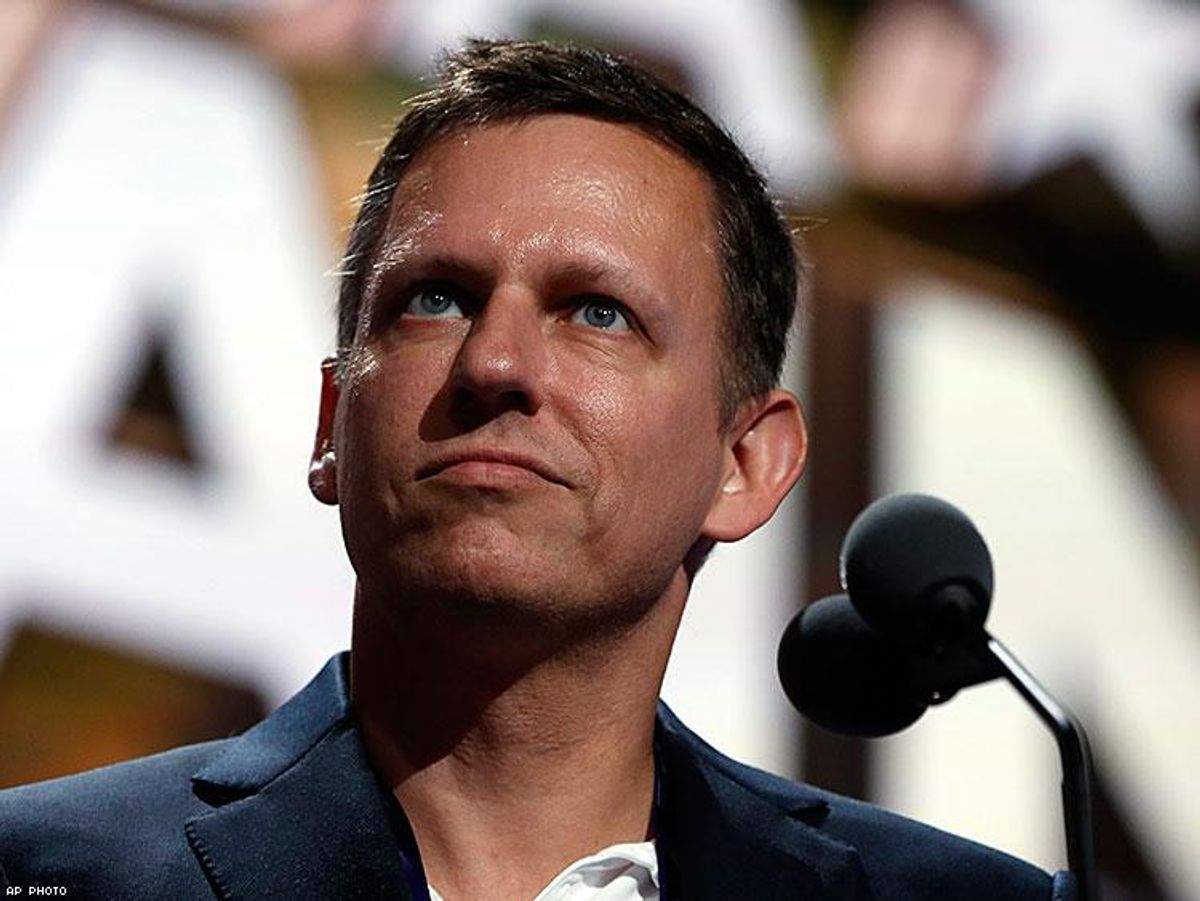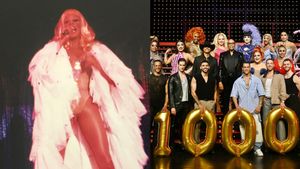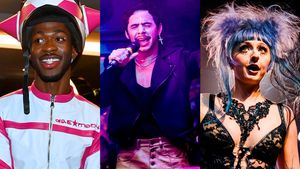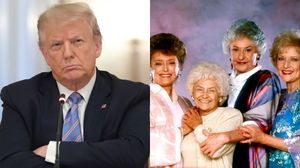All Rights reserved
By continuing to use our site, you agree to our Private Policy and Terms of Use.
Peter Thiel, the Silicon Valley billionaire who made news this summer for endorsing Donald Trump at the Republican convention, is a man who has sex with other men. But is he gay?
That question might seem narrow, but it is actually raises a broad and crucial distinction we must make in our notions of sexuality, identity, and community.
Since the Paleolithic Age, people have had sex with people of the same gender. But the notion that this made someone "homosexual" or "gay" was a relatively recent phenomenon in human history.
Beginning in the late 19th century, doctors, sexologists, and others began to argue that same-sex sex created the category of sexual orientation. Prior to that, sexual activities between people of the same gender were often considered sinful or criminal, but they rarely constituted what some in the medical community began to define at end of the 1800s as a "third sex" or "intersex" or even "homosexual." The creation of the category of sexual orientation not only classified homosexual sex but it also led to the invention of heterosexuality.
In the United States and many parts of Europe, the development of these categories led to the broader cultural understanding that these sexual acts created identities.
Trending stories
The understanding that sex had the power to define identity led to the demarcation of homosexual and heterosexual people -- as well as the subsequent stigma that those who were marked as homosexual were aberrant, criminally deviant, and socially unacceptable.
Yet the people who began to be identified as homosexual started to disagree with these assertions and found promise in this alternative identity. They established enclaves within the mainstream culture, places like pre-war Greenwich Village in New York City or Berlin in the 1920s, where they lived and socialized.
While these neighborhoods thrived, many people who were attracted to people of the same sex continued to fear the repercussions of being marked as homosexual. And so they denied that identity.
The significance of the Stonewall uprising on June 28, 1969 -- when LGBT people rose up in defiance against a police raid on their bar in New York City -- signaled a major turning point in global history. Many LGBT people started refusing to accept the definition of homosexuality as an identity that meant inferior, aberrant, criminal, and, most of all, unequal. When the people in the riot stood up against the police, they embraced a definition of homosexuality that recognized that people who had sex with people of the same gender had a distinct culture, identity, and history that connected them to 1920s Berlin and beyond.
From the 1970s to the present, many people who came out of the closet as gay understood their identity as part of a subculture and a specific community. They may not have known the exact history of how this sexual classification emerged or even understood its cultural vernacular, but they had a very clear recognition that being gay meant more than just having sex with someone of the same gender. They embraced the understanding that their sexual proclivities have defined their identity.
In the 1970s, when this development emerged, gay people began the exhaustive, tireless task of creating a culture to substantiate their identity. Contrary to conventional wisdom that LGBT people rejected religious institutions, many founded their own churches and synagogues and sought refuge in worship. LGBT people launched their own newspapers, organized political rallies, and created neighborhoods in which to socialize and live.
In Toronto, gay people began The Body Politic, which was a newspaper that reached readers across North America and throughout the word, solidifying a global gay identity. The Body Politic reported on local, national, and international news that affected gay people, and it also featured a huge cultural component: There were reviews of recently published books by gay authors, articles about gay films and documentaries, and a special section titled "In Our Image" devoted to historical explorations of gay artists, musicians, and thinkers.
The Body Politic and many other gay publications founded during the 1970s illustrated how being gay was not just about sex but a cultural identity. LGBT people had created various forms -- newspapers, plays, bookstores, churches, intellectual societies -- that articulated the meaning of a distinct gay culture.
But the idea of being gay as a distinct cultural identity is now under new pressures.
That brings us to Peter Thiel. At the convention in Cleveland in July, Thiel was the first person in the history of the party to declare his homosexuality on stage to an audience of people who have historically opposed same-sex marriage, among other LGBT rights.
Some Republicans and media portrayed Thiel's statement as progress: The party had embraced an out gay man, and the convention had reflected the diverse ideological identities of LGBT Americans. But his statement also challenged that 1970s notion of a gay identity.
By the logic of gay liberation, Thiel is an example of a man who has sex with other men, but not a gay man. Because he does not embrace the struggle of people to embrace their distinctive identity.
In a very telling moment, Thiel referred to the devastating legislation that North Carolina and Mississippi passed prohibiting transgender people from using the bathrooms of their choice as a "distraction." Thiel also endorsed a political platform and party that includes the vice-presidential nominee who has voted aganst hate-crime laws, opposed HIV funding, and supported a law allowing businesses to deny services to people who identify as gay.
In this way, Thiel reaffirmed his own sexual choices -- while separating himself from gay identity. His notion that transgender people's predicament is somehow a distraction effectively rejects the conception of LGBT as a cultural identity that requires political struggle to defend. For a technologist who sees himself as defining the future, it is a very premodern sentiment.
Thiel's comment is also a too common statement. Since the end of the '70s, many gay people have not invested in the creation of a cultural identity to the extent that their forbears did. Part of the success of gay liberation meant that they no longer needed to do this kind of cultural work.
But there are real human consequences to this retreat. And those consequences go beyond someone like Peter Thiel endorsing a platform that is actually dangerous to LGBT people. In the recent aftermath of the Orlando massacre, the media began to claim Omar Mateen, the terrorist who killed 49 people and wounded 53 others at the Pulse nightclub in that city, was also gay. This identification failed to recognize the cultural meaning of the term. "Gay" does not simply mean sex with another man or even interest in another man physically, as in Mateen's case, but rather "gay," as defined by the liberation movement, meant an open declaration of acceptance within a community of people who understood that their sexual orientation made them a part of distinct culture.
Further, identifying Mateen as gay plays into an early-20th-century definition of homosexuality as criminally deviant. The unspoken subtext in this assertion is that gay people are aberrant and their sexual orientation drives them to commit such horrific crimes.
The power of the gay liberation movement of the 1970s was to shatter previous negative connotations associated with homosexuality and to imbue a new meaning of the term "gay," revealing how sexual identity translated to a specific community of people who were part of a distinct culture.
The history of the 1970s was not just about political campaigns for equality but it was also a subtle more profound movement to refashion the term gay. This does not mean that LGBT culture is homogenous or that all LGBT people have the same ideological viewpoints or values, but it does mean that they all understand, on some level, the notion of gay culture.
The gay liberation movement has left us a powerful legacy, and protecting that legacy requires understanding the meaning of the term "gay" and not using it simply as a synonym for same-sex desire and intimacy.
JIM DOWNS is the author of Stand By Me: The Forgotten History of Gay Liberation (Basic, 2016). He is an associate professor of history at Connecticut College.


















































































